Awards
Help individuals, families, and societies to better cope with life challenges related to illness and health, by promoting rigorous science, precise interventions, and close collaborations.
The Stan Maes Early Career Award
The deadline for applications is 31st October.
Who Was Stan Maes
You can read more about Professor Maes and his role in the EHPS by clicking on his card below.
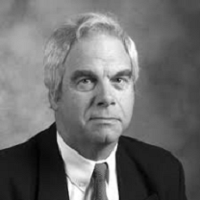
Professor Stan Maes
Stan Maes: the founder of European Health Psychology
Eligibility
Criteria for the Stan Maes Early Career Award
Application materials (please submit)
Award
Stan Maes Early Career Award Winners
Stan Maes Early Career Awards 2024

Canada

Ireland

Australia
Stan Maes Early Career Awards 2023

Finland

Ireland

Germany
Dr. Jan Keller
Stan Maes Early Career Awards 2022

Canada
Dr. Andrea Patey
Dr. Andrea Patey is a Senior Research Associate within the Centre for Implementation Research and the Psychology and Health Research Group at the Ottawa Hospital Research Institute, Ottawa, Canada. She completed her PhD in Health Psychology at City, University of London, UK. Her research interests include the intersection of health psychology and implementation research, specifically the application of psychological theory and methods to explain and change health professional behaviours across a range of clinical settings. Andrea’s particular interest in behaviour change focuses around whether implementation (starting an evidence-based clinical practice behaviour) and de-implementation (stopping an ineffective or harmful clinical behaviour) differ, and correspondingly, whether interventions to target each should also differ.
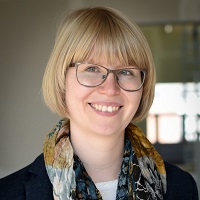
Germany
Dr Laura M König is Junior Professor of Public Health Nutrition at the University of Bayreuth, Germany. She completed her PhD in Psychology under the supervision of Professor Britta Renner at the University of Konstanz in 2018. Prior to taking up her current position, she held a Research Fellowship from the German Research Foundation (DFG) to study reactivity to digital measurement of health behaviour at the University of Cambridge, UK. Her work has been published in leading journals such as Health Psychology Review.

United Kingdom
Dr Emma Norris is a Lecturer at Brunel University London in the Department of Health Sciences, where she Co-chairs the Health Behaviour Change Research Group. She received her PhD in 2017 at University College London, assessing physically active lessons as behaviour change interventions for primary-school children. She undertook a three-year postdoctoral role on the Human Behaviour-Change Project working with Prof. Susan Michie. Her research focuses on improving evidence synthesis of behaviour change interventions using ontologies and machine learning, as well as the development and assessment of physical activity, smoking and digital interventions. She also has a growing research interest in using behaviour change approaches to increase Open Science in researchers.
Stan Maes Early Career Awards 2021

Switzerland
Dr. Corina Berli
Dr Corina Berli is a postdoctoral research and teaching fellow at the University of Zurich in the Applied Social and Health Psychology research group (Prof. Dr. Urte Scholz). She received her PhD in 2014 at the University of Bern, Switzerland. Her research focuses on understanding the role of the close relationship context in shaping health behavior change in daily life, and how these processes can be effectively targeted in theory-based dyadic interventions with innovative designs. Corina for example investigated how mobile technology (e.g. text messaging, mobile applications) can be used to promote couples’ physical activity or to facilitate smoking cessation via a support buddy. Her work routinely uses a dyadic perspective, intensive longitudinal methods and objective outcome assessments. Corina’s work has been published in several key journals in the field of Health and Social Psychology. As Principal Investigator she was recently awarded a three-year research grant from the Swiss National Science Foundation (SNSF) and the Deutsche Forschungsgemeinschaft (DFG) to develop a taxonomy of dyadic behavior change techniques. Corina received the Early Career Research Award of the Division of Health Psychology of the German Psychological Society (DGPs) in 2019. Corina is a regular and active participant of the EHPS conferences. She has organized several symposia, and regularly participated in Create workshops and Synergy meetings. She served as National Editor for Switzerland, Germany, and Austria of the Practical Health Psychology Blog of the EHPS between January 2018 and October 2020. Since October 2019 she serves as Associate Editor for Applied Psychology: Health and Well-Being.
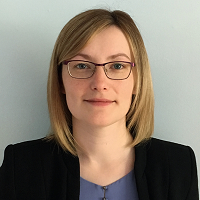
Canada
Dr. Nicola McCleary
Dr. Nicola McCleary is a Postdoctoral Fellow at the Centre for Implementation Research and Deputy Lead of the Psychology and Health Research Group at the Ottawa Hospital Research Institute in Ottawa, Canada. She completed her PhD in 2016 at the University of Aberdeen in Scotland. In her research, Nicola applies approaches from Health Psychology and Implementation Science to improve the translation of health evidence into practice through a focus on behaviour change, and is currently funded through a Health System Impact Fellowship awarded by the Canadian Institutes of Health Research. She is particularly interested in understanding the influence of automaticity on healthcare professional behaviour, and has expertise in conducting process evaluations alongside pragmatic trials to understand the mechanisms of behaviour change interventions. Her work has been published in leading journals such as Health Psychology. Nicola also teaches graduate students at the University of Ottawa, focusing on the application of Health Psychology theory to implementation and healthcare quality improvement. Nicola is an active member of the EHPS: she routinely presents at conferences, has participated in the Synergy Expert Meeting, is a member of the EHPS Habit Special Interest Group, and this year served as co-Track Chair for the Implementation & Health Services Research track. Nicola also serves as a peer reviewer for EHPS journals, as the National Editor for Canada for the Practical Health Psychology Blog, and is an Associate Editor of the European Health Psychologist Magazine.

Ireland
Dr. Eimear Morrissey
Dr Eimear Morrissey is a Postdoctoral Research Associate at the National University of Ireland, Galway and a member of the Health Behaviour Change Research Group directed by Prof Molly Byrne. She completed her PhD in Health Psychology under the supervision of Dr. Gerry Molloy and Dr. Jane Walsh in the School of Psychology at NUI Galway in 2018, focusing on developing the evidence base for digital interventions to enhance adherence to medication in people with hypertension. This work was recognised with the Ruth Curtis Postgraduate Excellence in Research Award from the Psychological Society of Ireland. She currently manages D1 Now, a large publically-funded programme of research aiming to improve self-management for young adults living with type 1 diabetes. A key aspect of this role involves working with a Patient and Public Involvement (PPI) panel of young adults living with type 1 diabetes. Owing to her experience and dedication in this area, Eimear has been invited to deliver seminars on PPI, including contributing to a highly impactful documentary entitled ‘The Patient Effect’. Eimear is actively involved in the wider health psychology community, having served as treasurer of CREATE from 2016-2018 and is currently a committee member of the Psychological Society of Ireland Division of Health Psychology and National Delegate for Ireland at EHPS. Her research interests centre on self-management of chronic disease, digital health and patient and public involvement. Other interests include novels, nature and walking with her dog Daisy.
Stan Maes Early Career Awards 2020

Switzerland
Dr. Janina Lüscher
Dr. Lüscher is a senior teaching and research associate at the University of Zurich. Janina Lüscher was awarded her PhD by the University of Bern in November 2014, and subsequently joined the research group Applied Social and Health Psychology of Prof. Scholz at the University of Zurich. Dr. Lüscher’s research focus is on individual regulation and social exchange processes (i.e., social support, social control, companionship), health behavior change and well-being in romantic couples’ everyday lives. She has substantially contributed to the field of health psychology by highlighting how the involvement of a romantic partner can be a valuable resource for changing a health behavior. As one of the first researchers, Janina investigated the concept of invisible social support in a health behavior change context and was the first to introduce the concept of invisible social control. Dr. Lüscher’s research typically draws on new technologies (i.e., smartphones, accelerometers, smokerlyzer etc.) and utilizes ecological momentary assessment (EMA) methods to understand within-person and within-couple processes around social exchange processes and health behavior change in couples’ everyday lives. She collaborates with renowned experts (and EHPS members themselves) in health psychology from Germany, Poland, Scotland, Canada and the USA. Janina’s work has been published in several key journals within the field, including Annals of Behavioral Medicine, PlosOne, and British Journal of Health Psychology. She is an active member of the EHPS and for eight consecutive years now she is a regular and active participant of the EHPS conferences, serving not only as a presenter but also as a session and symposium chair. Furthermore, she contributed to several Create workshops and Synergy expert meetings. Since the beginning of 2018, Janina Lüscher is the National Editor of the “Practical Health Psychology” blog of the EHPS for Austria, Germany and Switzerland. Furthermore, since June 2018 she is associate editor for Applied Psychology: Health and Well-Being.

The Netherlands
Dr. Gill ten Hoor
Gill ten Hoor is assistant professor at the Faculty of Psychology and Neuroscience (FPN), Maastricht University, and adjunct instructor at the University of Texas Health Science Center at Houston. Gill has an MSc in biology (Sports and Physical Activity Interventions), an MSc in Psychology, (Health & Social Psychology), and a PhD in Behavioural science. In his training and research, Gill has actively sought to combine biological and psychological insights, especially developing interdisciplinary approaches to the prevention of obesity in youth. Within this research line, there is a specific focus on physical activity, sedentary behaviour, and body composition. Next to this, Gill is certified Intervention Mapping trainer and contributes to planned behaviour change in various topics (e.g. waste separation and Chlamydia testing), as well as behaviour change methods (e.g. threatening messages and implementation intentions). One landmark publication is the introduction of “Implementation Mapping”, a protocol for applying Intervention Mapping (using insights from Implementation Science) to develop implementation strategies (Fernandez, ten Hoor, et al., 2019). In his entire career, Gill strives for openness and transparency in science: his publications, including his entire PhD dissertation, are open-access, and all data, syntax, and output are available to guarantee scientific integrity. Gill is an active EHPS-member since 2013, Dutch National delegate since 2018, co-founder of Practical Health Psychology (www.practicalhealthpsychology.com), executive editor for Health Psychology Bulletin and reviewer for EHPS journals. In 2018, he received the Herman Schaalma Award.

Ireland
Dr. Elaine Toomey
Dr. Elaine Toomey is a Postdoctoral Research Fellow in the National University of Ireland (NUI) Galway and a member of the Health Behaviour Change Research Group directed by Prof Molly Byrne. She completed her PhD in 2016 from University College Dublin. Her research interests are in the development, evaluation and implementation of health behaviour change interventions, focusing on improved methodology to maximise health research impact and translation into practice. In particular, Elaine specialises in addressing intervention fidelity within health behaviour change research. She has led several international collaborations in this area, including with EHPS members from Ireland, the UK and Finland. Elaine has received a number of international awards for her research, including a Leamer-Rosenthal Early Career Researcher Prize from the University of California, Berkeley for her PhD research in 2016, and a James M. Flaherty Early Career Research Award from the Irish Canadian University Foundation in 2017. She was also recently appointed as Associate Director of Cochrane Ireland, a senior leadership role within a €2.5million initiative focusing on maximising health research impact within policy and practice. Since 2016 Elaine has organised and/or delivered over 35 different capacity-building events to researchers, healthcare practitioners and government agencies, including developing and delivering intervention fidelity training/workshops internationally. She also teaches, coordinates modules and supervises students on the MSc in Health Psychology in NUI Galway. Elaine is an active member of EHPS and was on the Local Organising Committee and the Synergy Committee for EHPS 2018. She has also convened and participated in several symposia, pre-conference workshops and Synergy expert meetings, as well as presenting her research at all EHPS conferences since becoming a member. She is an enthusiastic open science advocate and is Co-chair of the recently established EHPS Open Science Special Interest Group and a member of several committees including the Irish Health Research Board Open Research National Steering Committee, and the Berkeley Initiative for Transparency in the Social Sciences ‘Catalyst’ ambassadors.
Stan Maes Early Career Awards 2019

Poland
Dr. Dominika Kwasnicka
Dr Dominika Kwasnicka is a Post-doctoral Research Fellow at Curtin University in Australia. In March 2019, she joined SWPS University of Social Sciences and Humanities in Poland. After receiving her doctorate in 2015 she has worked on several health behaviour-change projects, researching predictors of health behaviour-change maintenance. The overarching aim of Dominika’s scientific work is to advance psychological theory of behaviour-change maintenance and to design behavioural interventions to improve population health. Dominika’s research makes three key contributions to the field of Health Psychology, by: (1) Integrating theories of behaviour-change maintenance, investigating key predictors of maintained health behaviour-change; (2) Testing and advancing these theoretical predictors in systematically-developed studies and evidence-based interventions focusing on diet, physical activity, and weight loss maintenance; (3) Contributing to the development of novel research methods employing upcoming designs such as within-person N-of-1 studies using emerging technologies. Examples of novel behaviour-change maintenance studies that she co-designed and led include the PATHS study – an online intervention in frontline healthcare professionals delivered in four hospitals (www.paths.org.au); and the Aussie-FIT physical activity intervention applied in two leading Australian Football League clubs (www.aussiefit.org). Dominika is an active member of EHPS, she is a Head Editor of the Practical Health Psychology Blog (www.practicalhealthpsychology.com), an online international publication informing practice, translated to 20 different languages. She has worked as a Liaison Officer and grant reviewer and currently she is a Chair for EHPS Synergy. Previously she was also a member of EHPS eCourses organising committee and CREATE Organising Board. Dominika has co-delivered pre-conference workshops on N-of-1 design titled: Challenges and solutions for N-of-1 design studies in health psychology. She also led on a collaborative publication which resulted from the workshop, written with workshop participants, published in Health Psychology Review.

Portugal
Dr. Marta Marques
I am a Marie Sklodowska-Curie Research Fellow at Trinity College Dublin, and hold an Honorary Research Associate position at University College of London. I obtained my Ph.D. in from Leiden University in 2015, supervised by Professor Stan Maes. In the same year, I received a post-doctoral fellowship from the Portuguese Science Foundation to continue my research at the University of Lisbon, and later worked as a Research Associate at the University of Newcastle and University College London. My research focuses on understanding the motivational and self-regulation processes underlying health behaviour change and maintenance, developing and testing theory-based digital health interventions, and advancing the methods for the systematisation of behaviour science (e.g. ontological approaches). I’ve worked in large international innovative projects in the field of behaviour change such as the EU-H2020 project NoHoW (digital tools for weight loss maintenance), and the Human Behaviour-Change Project. In the last 7 years, I’ve largely contributed to the activities of the EHPS, I was associate editor of the European Health Psychologist, chair of the E-courses Committee, and member of the EHPS-UN subcommittee. In August 2016, I joined the Executive Committee, taking the role of Membership Officer. I’ve contributed to the dissemination and impact of health psychology to policy making (e.g. WHO global mActive program), I’ve published numerous papers in key journals of the field, and I am a member of the editorial board of the International Journal Behavioural Medicine.

Ireland
Dr. Karen Matvienko
Dr Matvienko-Sikar was awarded her doctorate from University College Cork in 2015. She is currently a Research Fellow in the School of Public Health, University College Cork. Dr Matvienko-Sikar currently holds a Health Research Board Applying Research into Policy and Practice Fellowship in the area of parental stress. She was previously a Health Research Board Interdisciplinary Capacity Enhancement Award Postdoctoral Research Fellow involved in developing, implementing and evaluating a complex intervention to prevent childhood obesity. Her main research interests are in the areas of stress and behaviour change as they relate to maternal and child health. She is also particularly interested in measurement of behavioural and psychophysiological outcomes, which often interact in the aetiology of perinatal ill health and child outcomes. Dr Matvienko-Sikar was awarded the Psychological Society of Ireland Hannah McGee Excellence in Research and Practice Award in 2018, and was awarded a Royal Irish Academy Charlemont Fellowship in 2017 for her research on stress measurement in pregnancy. In 2018, she was an invited speaker at the Irish Parliamentary level to discuss research findings to inform prevention of childhood obesity. Dr Matvienko-Sikar is an active member of the EHPS and sits on committee of the Psychological Society of Ireland, Division of Health Psychology.
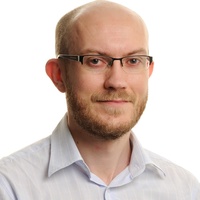
United Kingdom
Dr. Dan Powell
Dr. Powell is a Lecturer in Health Psychology at the University of Aberdeen. He was awarded his PhD by the University of Southampton in 2014, and subsequently joined the Aberdeen Health Psychology Group as a Research Fellow working primarily with Dr Julia Allan. Dan’s research typically utilises ecological momentary assessment (EMA) methods to understand within-person processes around stress, fatigue, and health-related behaviour in daily life. His work has been published in several key journals within the field, including Health Psychology, Annals of Behavioral Medicine, and Psych neuroendocrinology. Dan is an active member of EHPS who served on the Scientific Committee and Local Organising Committee in 2016, and as a Track Chair in 2016 and 2017. He has convened symposia and roundtables, and delivers regular pre-conference workshops on EMA methods with Dr. Turu Stadler. Dr Powell is a Chartered Psychologist (British Psychological Society) and a Fellow of the Higher Education Academy (HEA) in the UK. He is a Consulting Editor for Health Psychology and Behavioral Medicine, and on the Scholars Board of the British Journal of Health Psychology.
Stan Maes Early Career Awards 2018

United Kingdom/Canada
Dr. Theodore D. Cosco
Dr. Theodore D Cosco is a Postdoctoral Research Fellow in the Gerontology Research Centre at Simon Fraser University and the Oxford Institute of Population Ageing at the University of Oxford. He holds a Canadian Institutes of Health Research Postdoctoral Fellowship examining resilience and healthy ageing across the life course. Dr. Cosco is a Chartered Psychologist (British Psychological Society) trained in applied social research methods (MSc 2011, Trinity College Dublin,) and epidemiology (PhD 2015, University of Cambridge). Recently, he received the Early Career Achievement Award from the American Psychological Association (2017), the Young Investigator Colloquium Scholarship from the American Psychosomatic Society (2017), as well as becoming the youngest recipient of the Canadian Association on Gerontology’s Recognition Award for Excellence in Longitudinal Research in Honour of Betty Havens (2017). At age 12 Dr. Cosco began volunteering at a long-term care facility, beginning what would become a life-long passion for gerontology and the ageing process. Using both qualitative and quantitative approaches, e.g. grounded theory and longitudinal latent variable analysis, Dr. Cosco examines modifiable aspects of lifestyle, e.g. physical activity, that modify or mediate healthy ageing trajectories.

Switzerland
Dr. Jennifer Inauen
Dr. Inauen is a research group leader (tenure track) in environmental and health psychology at the Swiss Federal Institute of Aquatic Science & Technology (Eawag). She was awarded her PhD by the University of Zurich in 2013, and subsequently conducted her postdoctoral research there and at the University of Konstanz. In 2015, she joined Columbia University and New York University on a postdoctoral fellowship awarded to her by the Swiss National Science Foundation. Dr. Inauen’s research has significantly contributed to understanding health behaviour change in daily life, including the intention-behaviour gap. Furthermore, she extended health psychology theory and methods to the domain of safe water consumption and hygiene in low- and middle-income countries. She has published numerous papers in key journals of the field, including Annals of Behavioral Medicine. Dr. Inauen is an active member of the EHPS who has regularly presented her work at the EHPS conferences, chaired symposia, and has participated in CREATE and Synergy workshops since 2009. She served as a track chair for the mHealth track of the 2017 EHPS conference.
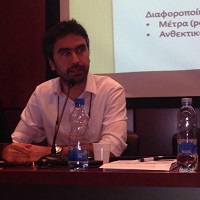
United Kingdom/Cyprus
Dr. Angelos Kassianos
Dr. Kassianos was awarded his PhD from the University of Surrey in 2014 and is working in the UK since then. Dr. Kassianos managed research projects and taught in different Universities including Imperial College London, the University of Cambridge, the University of Cyprus and Cyprus University of Technology and the University of Turin. In 2015, he was awarded a Fulbright Visiting Research Scholarship at the Harvard Medical School in the US. He is using health behaviour change evidence and theories to contribute towards cancer prevention, early diagnosis and care. An overarching theme of his research is also using innovative new technologies to optimize behaviour change as well as to collect patient-reported outcomes. He is currently working at the University College London (UCL), Department of Applied Health Research as a Research Associate where he is also a Co-Investigator on two Cancer Research UK (CRUK) Innovation Grants and holds a 2016 Global Engagement Fund (GEF). He was awarded a 2017 Young Transatlantic Innovation Leaders Initiative (YTILI) Fellowship by the US German Marshall Fund recognizing his work on developing innovation from his research work. He was also an invited speaker at the European Parliament in 2016 to talk about mHealth research evidence. Dr. Kassianos has been contributing to the EHPS participating and presenting at the Annual Conferences since 2012, serving as an EHPS-UN sub-committee member and as a Guest Editor to a European Health Psychologist Special Issue in 2017. He is currently the EHPS National Delegate (ND) of Cyprus.

Switzerland
Dr. Theda Radtke
Dr. Radtke earned her doctorate in 2011 from the University of Zurich (UZH), at which she now works as a senior teaching and research associate. Her main research interests are on health behavior change in children, adolescents, and families with a strong focus on compensatory health beliefs (CHBs). As one of the first researchers, Dr. Radtke found evidence for the negative impact of CHBs on health behavior change in different health domains. She further collaborates with renowned experts in the field of health psychology and worked at different universities worldwide contributing to joint scientific publications and collaborative grant acquisition. Dr. Radtke is a regular and active participant of the EHPS conferences (Poster award 2009). Since 2017, she is also one of the head editors of the Practical Health Psychology Blog (PHP) of the EHPS. Furthermore, Dr. Radtke was co-speaker of the junior scientists of the health psychology section of the German Psychology Society. In this role, she continuously contributed to networking and professional training of other young researchers.
Stan Maes Early Career Awards 2017

Germany
Dr. Lena Fleig
Dr. Fleig was awarded her PhD from Freie Universität Berlin in 2012. Dr. Fleig has contributed to the field of health behaviour change research in several ways. She developed a new scale to measure cross-behaviour cognitions, integrated two independent lines of research in health behaviour change research by combining compensatory health beliefs and transfer cognitions into one conceptual model of behavior. Dr. Fleig’s expertise in intervention research has also been acknowledged by the EHPS; as an invited track chair (behaviour interventions) she has had the opportunity to help shape the scientific program of the 2015 and 2016 EHPS conferences. Dr. Fleig was a member of CREATE from 2009 to 2015 continuously contributing to the networking and professional training of other young researchers.

The Netherlands
Dr. Eline Smit
After obtaining her PhD from the University of Maastricht in 2012, Dr. Smit was awarded a personal grant by the CAPHRI research institute to establish her own research line as a postdoctoral researcher, focussing on the role of autonomous motivation in smoking cessation. To expand her knowledge on this subject and extend her international network, she initiated this postdoctoral work by visiting Prof. Geoffrey Williams at the Motivation Research Group (University of Rochester, United States). This work visit has yielded ongoing research collaborations, resulting in joint scientific articles (currently under review) and collaborative grant acquisition. As an assistant professor, Dr. Smit is excited to pass on her knowledge and expertise to a new generation of health psychologists. To this end, she is teaching courses in health communication and psychology at the University of Amsterdam. Dr. Smit has already published numerous scientific articles in international, high-impact peer-reviewed journals including two discussion papers in the European Health Psychologist. Dr. Smit has presented her research at various (inter)national conferences – and often at the EHPS.